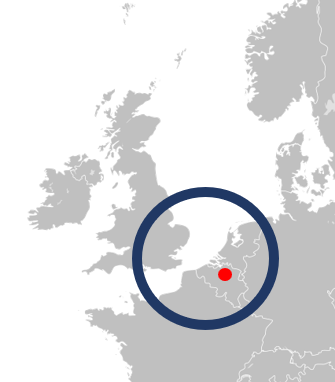The Belgian Network and Information Systems (NIS) regulations, which apply to operators of essential services (OES) and digital service providers (DSP), have important implications for the Internet of Things (IoT).
The NIS regulations seek to strengthen critical infrastructure's resilience to cybersecurity threats and to ensure the continuity of essential services in the event of a security incident. The regulations cover a variety of industries, including energy, transportation, banking, healthcare, and digital infrastructure. The requirement for OES and DSP to implement appropriate security measures to protect their networks and information systems is a key aspect of the NIS regulations. These measures must be proportionate to the organization's risks and include technical and organizational safeguards to prevent, detect, and respond to cybersecurity incidents.
This means that manufacturers and operators of IoT devices must implement appropriate security measures to protect their devices from cybersecurity threats. This includes ensuring that IoT devices are designed and manufactured with security in mind, that software updates to address vulnerabilities are regularly released, and that user authentication and access controls are implemented to prevent unauthorized access.
Another important aspect of the NIS regulations is the requirement for OES and DSP to report major security incidents to the appropriate authorities. This is done to ensure that incidents are identified and addressed as soon as possible, and that appropriate measures are put in place to prevent similar incidents from happening in the future. This means that manufacturers and operators of IoT devices must have mechanisms in place to detect and respond to security incidents as soon as possible. This includes putting in place monitoring and logging mechanisms to detect unusual behavior, as well as responding quickly to security incidents to avoid further damage.
The NIS regulations also mandate that OES and DSP conduct regular risk assessments and implement appropriate incident response plans. This is intended to ensure that organizations are well-prepared to deal with security incidents and can respond quickly to mitigate their impact. This means that manufacturers and operators of IoT devices must conduct regular risk assessments to identify potential security threats and vulnerabilities. They must also have incident response plans in place to ensure that security incidents are dealt with quickly and effectively.
Finally, the Belgian NIS regulations have significant implications for IoT, requiring manufacturers and operators to implement appropriate security measures and to promptly report security incidents. While the regulations pose challenges for the IoT industry, they are critical for ensuring the security and resilience of critical infrastructure as well as protecting against cybersecurity threats.
The NIS regulations seek to strengthen critical infrastructure's resilience to cybersecurity threats and to ensure the continuity of essential services in the event of a security incident. The regulations cover a variety of industries, including energy, transportation, banking, healthcare, and digital infrastructure. The requirement for OES and DSP to implement appropriate security measures to protect their networks and information systems is a key aspect of the NIS regulations. These measures must be proportionate to the organization's risks and include technical and organizational safeguards to prevent, detect, and respond to cybersecurity incidents.
This means that manufacturers and operators of IoT devices must implement appropriate security measures to protect their devices from cybersecurity threats. This includes ensuring that IoT devices are designed and manufactured with security in mind, that software updates to address vulnerabilities are regularly released, and that user authentication and access controls are implemented to prevent unauthorized access.
Another important aspect of the NIS regulations is the requirement for OES and DSP to report major security incidents to the appropriate authorities. This is done to ensure that incidents are identified and addressed as soon as possible, and that appropriate measures are put in place to prevent similar incidents from happening in the future. This means that manufacturers and operators of IoT devices must have mechanisms in place to detect and respond to security incidents as soon as possible. This includes putting in place monitoring and logging mechanisms to detect unusual behavior, as well as responding quickly to security incidents to avoid further damage.
The NIS regulations also mandate that OES and DSP conduct regular risk assessments and implement appropriate incident response plans. This is intended to ensure that organizations are well-prepared to deal with security incidents and can respond quickly to mitigate their impact. This means that manufacturers and operators of IoT devices must conduct regular risk assessments to identify potential security threats and vulnerabilities. They must also have incident response plans in place to ensure that security incidents are dealt with quickly and effectively.
Finally, the Belgian NIS regulations have significant implications for IoT, requiring manufacturers and operators to implement appropriate security measures and to promptly report security incidents. While the regulations pose challenges for the IoT industry, they are critical for ensuring the security and resilience of critical infrastructure as well as protecting against cybersecurity threats.
What we do everyday
OBJECTSconnexted is a leading provider of services in the field of the Internet of Things (IoT). The company is focused on helping organizations to identify and implement IoT solutions that can drive innovation, improve efficiency, and generate new revenue streams.
In the geographic heart of Europe
OBJETCSconnected's headquarters are in Belgium, close to Brussels and Antwerp. We are based in the heart of Europe.

PUBLISHED ON
